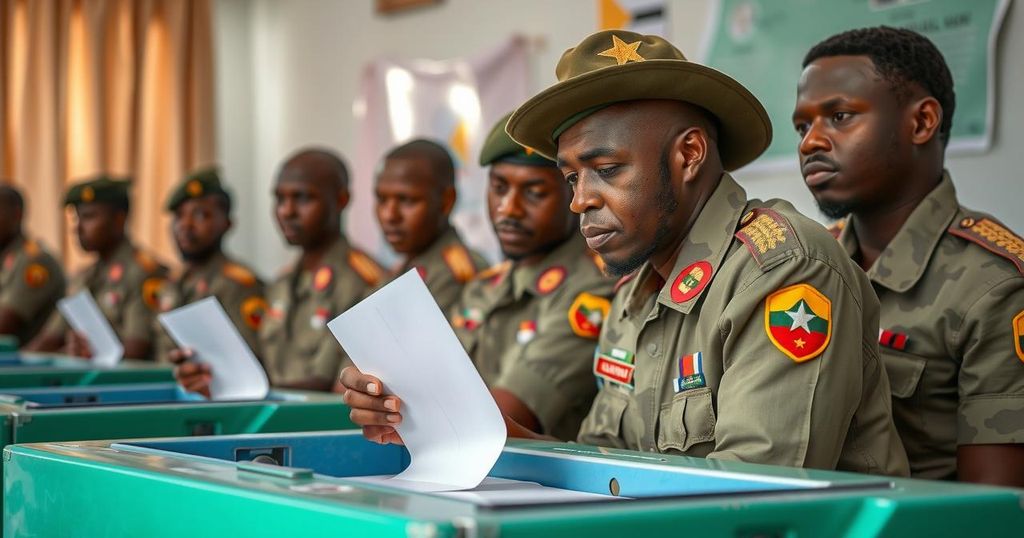Chad held parliamentary elections on Sunday with low voter turnout amid a boycott from the opposition, questioning the legitimacy of the electoral process. This election marks the end of a three-year military rule and follows a disputed presidential vote. The elections aim to restore democracy, though concerns about opposition representation and electoral integrity persist.
On Sunday, Chadians participated in parliamentary and regional elections marked by notably low voter turnout. This election signifies the end of a three-year transitional period following military governance, yet it has experienced widespread boycott from major opposition parties. The opposition has raised concerns regarding the integrity of the electoral process. Mahamat Idriss Deby, who assumed control after his father’s death in 2021, orchestrated these elections after a disputed presidential contest earlier in the year, which was purportedly intended to restore democracy to the oil-rich nation.
Voting concluded late Monday, with official results expected in approximately two weeks. Deby expressed that the election is a pivotal step toward decentralization, which the Chadian populace has long desired. With an electorate of over eight million, citizens were set to elect 188 representatives for the newly established National Assembly—alongside provincial and municipal representatives. However, reports indicated a disappointing turnout, particularly in N’Djamena, where polling stations appeared nearly deserted.
A coalition of over ten opposition parties has opted not to participate, denouncing the election as a façade designed to maintain Deby’s power and entrench a dynastic rule. Succes Masra, leader of the Transformers party and a key presidential challenger, previously criticized both the parliamentary and presidential elections, labeling them as illegitimate and indicative of ongoing electoral fraud. He advised potential voters to abstain from participating. This electoral event occurs amidst significant security challenges facing Chad, including threats from Boko Haram and shifting military alliances, particularly with France.
Political analyst Mahamat Oumar Adam articulated that the crucial issue at stake is the preservation of democracy and the risk of extending the transitional government. The current electoral process represents a critical juncture as it follows a national dialogue, a recent constitutional referendum, and a precarious presidential election.
Chad’s parliamentary election marks an essential moment in the nation’s political history, as it follows years of military rule and seeks to re-establish a democratic governance structure. The transition began in 2021 after the late president Idriss Deby’s passing, with Mahamat Idriss Deby assuming leadership. The political atmosphere is fraught with skepticism regarding the government’s commitment to a fair electoral process, especially after the recent contested presidential elections where opposition voices were largely suppressed. This backdrop underscores the complexities of the current electoral situation and the critical role of public participation in successfully navigating the transition to democracy.
The parliamentary elections in Chad represent a pivotal and tumultuous moment in the country’s quest for democracy following years of military rule. Despite being heralded as a step toward necessary political reform, the low voter turnout and opposition boycotts reveal significant distrust in the electoral process. Future stability and progress toward true democratic governance will depend on addressing these concerns and fostering a more inclusive political environment.
Original Source: apnews.com






